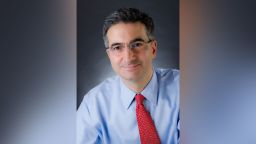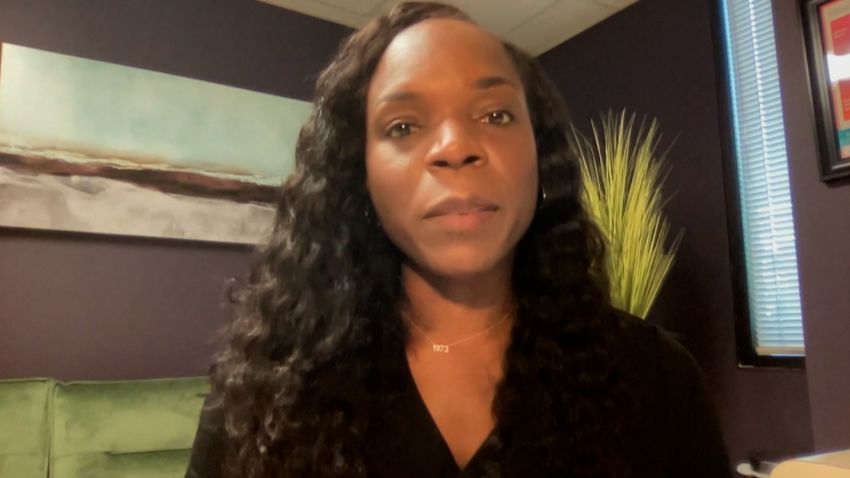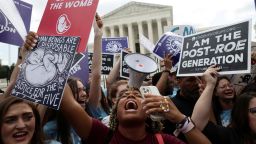Editor’s Note: Dr. Robert Klitzman is a professor of psychiatry and director of the online and in-person masters of bioethics programs at Columbia University. He is the author of “Designing Babies: How Technology Is Changing the Ways We Create Children,” “Am I My Genes? Confronting Fate and Family Secrets in the Age of Genetic Testing” and “The Ethics Police? The Struggle to Make Human Research Safe.” The opinions expressed in this commentary are solely his own. View more opinion on CNN.
I’ll never forget taking the Hippocratic oath. In a somber, dark, wood-paneled room at my medical school, rows of my graduating medical school classmates and I stood wearing pristine white coats. We raised our right hands and solemnly swore to the Most High to uphold the highest possible ethical standards in treating patients for the rest of our careers.

We pledged to serve patients to the utmost of our abilities, to put their benefit first, preserve their confidentiality and avoid harming them. The seriousness of our oaths deeply moved us.
Being a doctor is different from being a business executive, salesperson or politician – we commit ourselves to a very high moral code. That’s not to say that an individual in another field of work can’t do the same, but for doctors, it’s part of the job description.
The oath, a version of which was written some 2,000 years ago, remains our traditional moral compass, our North Star, deeply engrained within us to guide us when we face conflicting demands – those middle-of-the-night struggles with sick patients when we’d prefer just to go home and sleep.
It is what permits countless patients to trust us and allows us, as strangers, to treat their bodies and hear their deepest secrets, whether it’s about sexual activity, illicit drug use or mental health. We also learn and dedicate ourselves to more recently acknowledged bioethical principles, such as the upholding of patients’ rights and autonomy, and justice and protection of vulnerable groups.
But the Supreme Court’s decision to overturn Roe v. Wade now forces doctors to grapple with having to violate these principles because of a judicial mandate that most Americans, according to a recent CNN poll, oppose.
It’s worth noting that patients discuss potential abortions not only with OB-GYNs but also internists, psychiatrists and others in the medical field. As a psychiatrist and researcher, I have spoken to women about abortion decisions they have faced. I’m fortunate to work in New York, a state that will undoubtedly preserve abortion rights, but many of my fellow doctors in other states are terrified and deeply troubled by the court’s opinion. With the fall of Roe, doctors may now have to face the disturbing decision between following the law or the Hippocratic oath.
States already vary widely on whether, when and under what circumstances a woman may have an abortion. Sixteen states, including Washington, DC, have laws that protect the right to abortions. Another 13 have so-called trigger bans in place that would take effect in the absence of Roe, according to the Guttmacher Institute, a research organization that supports abortion rights. And nine additional states have restrictions on abortion that could be brought back into effect in light of the Supreme Court’s decision.
In Michigan, for instance, Roe has for nearly 50 years superseded a 1931 law that bans nearly all abortions unless it is “necessary to preserve the life” of a patient. Last month, a judge issued a preliminary injunction blocking the law while a decision in a Planned Parenthood lawsuit – which argues that the 1931 law violates the State Constitution – is still pending.
With Roe overturned, the situation in Michigan shows the way my colleagues in various states may be forced to confront dilemmas about how to interpret restrictive abortion laws – and how high the risk of death needs to be, for example, in order to intervene. Similar questions now face doctors in Arkansas, which only allows abortion to save a woman’s life in “a medical emergency.”
I try to put myself in the position of colleagues in states where abortion will be banned or severely restricted and imagine the immense strain these doctors are now under.
In some states, laws will prohibit physicians from not only performing abortions but also “aiding and abetting” them in any way. The term aiding and abetting is, perhaps intentionally, terrifyingly vague; these doctors could potentially be prosecuted if they tell a pregnant woman who does not wish to have a child that she could go to another state for the procedure. Texas’ law encourages private citizens to sue abortion providers and any individuals aiding and abetting such a procedure. The reward for tattling is up to $10,000.
These laws could effectively extend beyond state lines if a patient from Texas, for example, seeks an abortion from a provider in a state where abortion is legal. A handful of states have recently begun to pass laws to protect their physicians from such suits. This month, New York Gov. Kathy Hochul signed the New York Freedom From Interference With Reproductive Health Advocacy and Travel Exercise Act, letting doctors in New York countersue in abortion lawsuits. Connecticut has passed a similar law, and California and New Jersey are considering legislation as well.
But in the vast majority of states, murkiness prevails, and physicians are worried.
States across the nation should adopt similar protections, but whether they will do so, and how this patchwork of varied state laws will play out is uncertain.
Unsurprisingly, in states with restrictive abortion laws, my OB-GYN colleagues are talking about moving. Medical students are telling me they do not want to train in states where they cannot discuss abortion. Far fewer trainees from our nation’s best medical schools who wish to provide reproductive health care will likely want to move to these states, which will only undermine the quality of care there.
Now that Roe is overturned, we are forced to embark on the slippery slope of questioning which elements of bodily autonomy are up for restriction in certain states, and this question presents doctors with an overwhelmingly long list of potential conflicts between following state laws and acting in the best interest of their patients. I implore state legislatures and governors to keep this in mind as they consider laws that will hamper quality health care for citizens of their state.
Covid-19 has already burdened physicians with an unprecedented level of emotional distress. Repealing Roe v. Wade will, for many, add to already high levels of stress.
We all need to recognize these broader harms to society as well as the negative impact this ruling will have on doctors, hospitals, our health care system and patients – regardless of whether they support abortion or not. An understanding of these dangers can help state and national policymakers as well as voters to reconsider carefully whether to support abortion bans.
Overturning Roe v. Wade doesn’t just hurt women seeking abortions – it harms us all.







